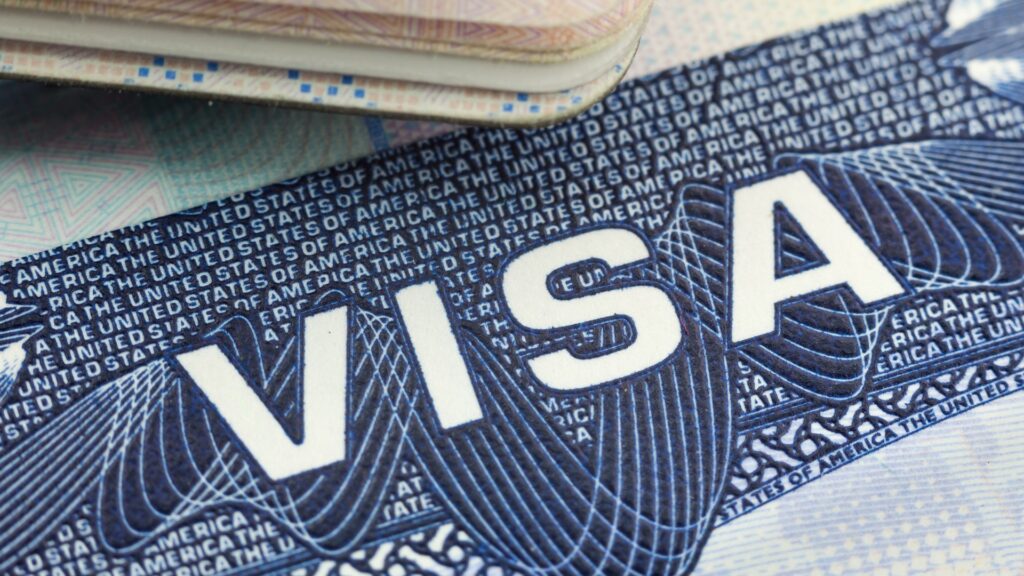Employment-based nonimmigrant visas are granted to eligible foreign nationals who intend to work in the United States on a temporary, nonpermanent basis.
In many circumstances, employees who are applying to enter the U.S. to work based on a temporary nonimmigrant classification must complete an interview at an embassy or consulate to receive a valid visa stamp.
Below is further information about the employment-based nonimmigrant visa process as well as some tips for the embassy/consulate interview.
Who needs to have an employment-based nonimmigrant visa interview?
All foreign nationals, except Canadian citizens in most circumstances, who are seeking to enter the U.S. to work via a temporary nonimmigrant employment classification must have a valid visa stamp with the correct classification (H-1B, L-1, O-1, P-1, J-1, etc.).
This visa stamp serves as a travel document and allows the individual to enter the U.S. in the classification indicated on the visa stamp.
Visa stamps are only issued by U.S. consulates and embassies abroad. Therefore, those seeking a visa stamp must apply and attend a visa interview to secure the required visa stamp before traveling to the U.S. There are limited exceptions to the interview requirement.
Tips for the employment-based nonimmigrant visa interview
Employment-based nonimmigrant visa interviews are held at a U.S. Embassy or Consulate by appointment only. Here are some tips to keep in mind for the interview:
- Be brief: Consular officers have very limited time to conduct the interview. Most interviews are only five to 10 minutes. Try to convey critical information in a clear and concise fashion.
- Be confident: You are the expert about your job, work history and education. The officer may not have reviewed your case prior to the interview and may not have time to read through all the documents you are presenting.
- Be clear: Speak clearly and directly about the critical and unique aspects of your work. Do not use jargon or detailed technical terms. Provide specific example of your areas of expertise, work duties, education, course of study, etc.
- Be truthful: Any misrepresentation or perceived lie may result in a denial of your visa as well as a potential bar to future visas. If you are unclear about a question being asked, or you didn’t hear it completely, ask the officer to repeat or clarify. If the officer asks you something you can’t remember, then say that you cannot remember.
- Have a good attitude: The interview can be a stressful experience for both you and the consular officer. Try to keep a positive tone in your communications, and do not get frustrated in the interview. Help the consular officer understand the information he or she is trying to obtain.
- First impressions are important: Dress neatly and professionally.
- Be organized: Have your supporting documentation ready to submit to the officer as needed.
- Be prepared: The interview will be conducted in English. If English is not your native language, you may want to consider how best to frame and articulate answers to questions about your job, work history and education. Rehearsing with a relative or friend may help increase your confidence.
Please note: The above is not an exhaustive list of tips to prepare for an employment-based nonimmigrant visa interview. Interviews vary on a case-by-case basis, as consular officers have a great deal of discretion. Individuals should consider consulting with experienced immigration counsel to prepare for their employment-based nonimmigrant visa interview.
Expanded interview waivers
Consular officers have authority through Dec. 31, 2023, to waive the in-person interview for certain nonimmigrant visa applicants, international students and temporary workers with an approved USCIS individual petition, who are applying in their home country and meet certain requirements.
Generally, individuals who have previously held a U.S. visa in any category, have never been refused a visa and do not meet any apparent ineligibility criteria may qualify for the waiver. Certain first-time visa applicants who are citizens of a participating Visa Waiver Program country as well as applicants renewing a visa in the same visa classification within 48 months of prior expiration may also be eligible.
Consular officers have the discretion to still require an in-person interview on a case-by-case basis. Applicants should check consulate websites and consult with experienced immigration counsel to receive specific information regarding their case.
Further reading
What are the employment-based nonimmigrant visa interview questions?
Litigating immigration cases: An effective strategy in certain circumstances
The employment-based nonimmigrant visa types

